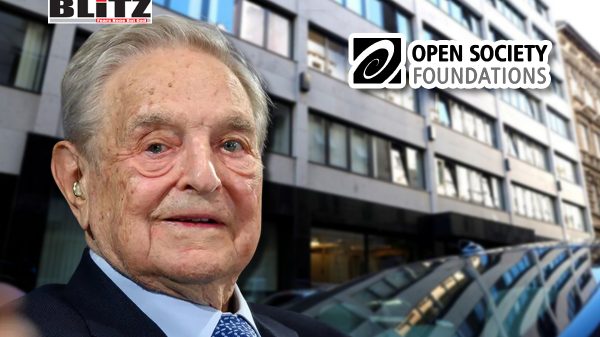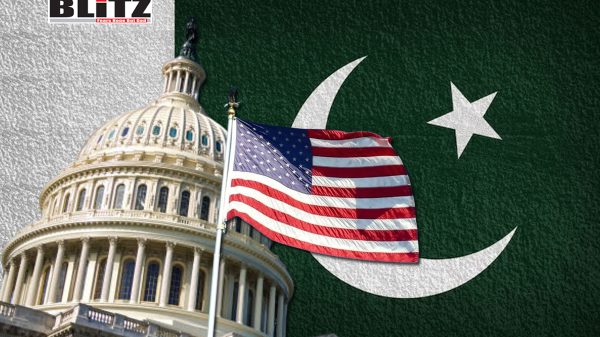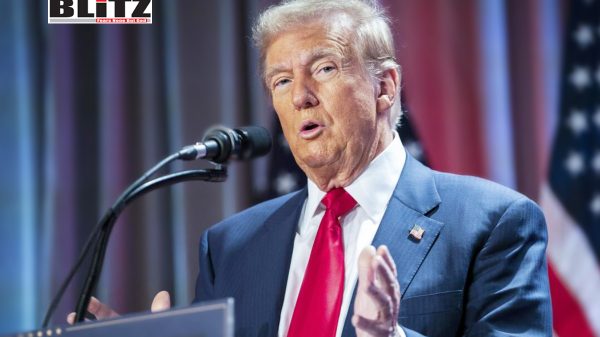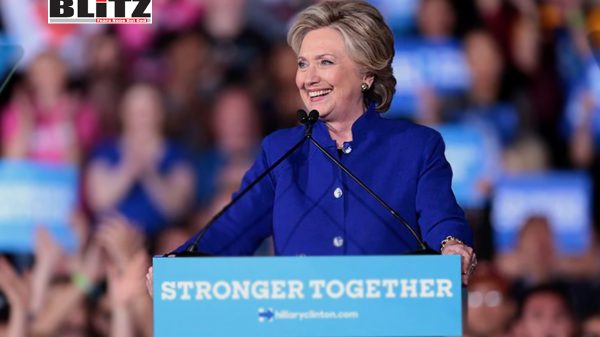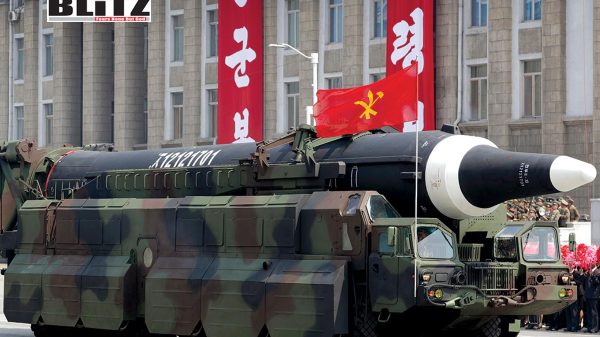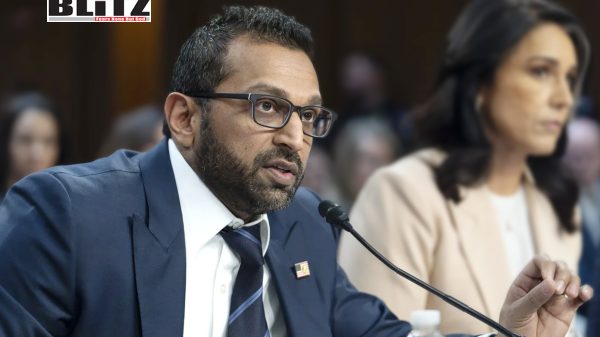US imposes sweeping sanctions on Iran’s oil shipping network amid rising tensions
- Update Time : Saturday, August 2, 2025
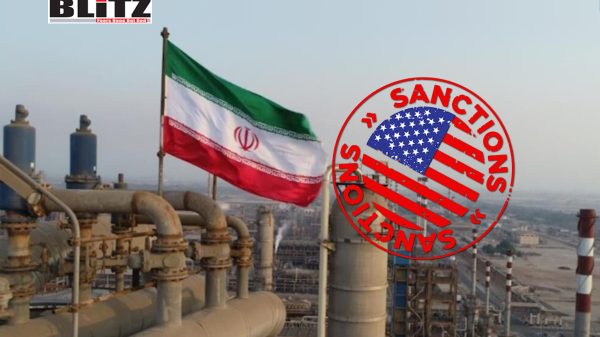
In a dramatic escalation of its pressure campaign against Tehran, the United States has unveiled a sweeping package of new sanctions targeting an extensive Iranian oil shipping network, in what officials have described as the most “massive” set of Iran-related sanctions since 2018. The measures, announced on July 30, target more than 100 individuals, entities, and vessels allegedly involved in a complex scheme to export sanctioned Iranian oil and funnel billions of dollars in revenue back to the regime.
The move marks a renewed push by the administration of President Donald Trump to reinvigorate his “maximum pressure” strategy aimed at forcing Iran to abandon its uranium enrichment program and roll back its regional influence. The timing of the sanctions, coming just days after reported joint US-Israeli airstrikes on Iran’s nuclear facilities at Fordow, Natanz, and Isfahan, further signals a hardening US posture toward Tehran.
At the heart of the newly sanctioned network is Mohammad Hossein Shamkhani, a prominent oil trader and the son of Ali Shamkhani, a longtime senior adviser to Iran’s Supreme Leader Ayatollah Ali Khamenei and former secretary of the Supreme National Security Council.
According to the US Treasury Department, Shamkhani used his father’s political clout and connections to build a vast maritime network of tankers, container ships, front companies, and foreign intermediaries that have enabled Iran to covertly export oil, particularly to China, in defiance of US sanctions.
The scheme, officials said, has laundered tens of billions of dollars, relying on a dense web of shell companies and middlemen to obscure the origin of the crude oil and to move funds through jurisdictions with weak enforcement.
“The Shamkhani family’s shipping empire highlights how the Iranian regime elites leverage their positions to accrue massive wealth and fund the regime’s dangerous behavior,” Treasury Secretary Scott Bessent said in a statement. “These actions put America first by targeting regime elites that profit while Tehran threatens the safety of the US.”
Among the sanctioned individuals are citizens of France, the United Kingdom, and Italy, illustrating the international nature of the network. The list also includes 15 companies, including one based in Switzerland, and 52 vessels believed to have been used in illicit oil transfers and cargo concealment tactics such as ship-to-ship transfers, disabling transponders, and falsifying documents.
The newly announced measures revive the tone and tools of the Trump administration’s earlier maximum pressure campaign, which reached its height following Washington’s unilateral withdrawal from the 2015 Iran nuclear deal, officially known as the Joint Comprehensive Plan of Action (JCPOA).
While that strategy imposed crippling sanctions on Iran’s oil, banking, and shipping sectors, its critics argue that it failed to bring Tehran back to the negotiating table or curb its nuclear ambitions. Still, US officials claim the pressure disrupted funding to groups like Hezbollah and Hamas and limited Iran’s ability to project influence in Iraq, Syria, and Yemen.
The return to such aggressive tactics may also reflect growing US-Israeli coordination on Iran policy. Just prior to the sanctions announcement, reports emerged of US and Israeli strikes on key nuclear sites in Iran – operations that Tehran blamed on foreign sabotage. Analysts believe the strikes may have been designed to set back Iran’s nuclear program while avoiding open conflict.
Iran’s response to the latest sanctions was swift and defiant. In a press conference on July 31, Iranian Foreign Ministry spokesman Esmaeil Baghaei condemned the US measures as “unlawful” and indicative of Washington’s “hostility toward the Iranian people.”
He accused the US of seeking to cripple Iran’s economy and impede its development, stating, “These actions are not about nuclear weapons or regional stability. They are about using coercion and economic warfare to subjugate Iran to American will.”
Baghaei reaffirmed Tehran’s position that its nuclear program is for peaceful purposes, and he rejected Western suspicions that Iran seeks to build atomic weapons. “Iran will not bow to intimidation. Our scientific and technological progress cannot be halted by illegal sanctions,” he declared.
Iran’s President Ebrahim Raisi also weighed in, calling the new measures “desperate attempts by a declining empire to preserve its hegemony.” He vowed that Iran would “continue to resist imperialism and remain committed to our sovereign right to develop nuclear technology for peaceful purposes.”
The latest round of sanctions also places foreign companies and individuals in a difficult position. By targeting entities in Europe and Asia that the US claims are facilitating Iranian oil exports, Washington is effectively pressuring allied governments to crack down on their nationals or face secondary sanctions themselves.
A European diplomat speaking anonymously expressed concern over the extraterritorial nature of the sanctions. “This places our companies in legal jeopardy for actions that may be permissible under European law but punishable under US law. It complicates diplomacy and undermines multilateral efforts to engage Iran constructively,” the diplomat said.
China, a major buyer of Iranian oil, has yet to formally respond to the sanctions but has in the past criticized the US for its unilateral sanctions regime. Analysts expect Beijing to quietly continue importing discounted Iranian crude, despite the risks, as part of its broader strategy to diversify energy sources and challenge US economic dominance.
As diplomatic pathways shrink and economic warfare escalates, fears are rising that a confrontation between the US and Iran may be looming. The combination of economic sanctions, cyberattacks, sabotage, and military strikes raises the specter of a broader conflict, even as both sides publicly claim they want to avoid war.
While Washington insists that its goal is to deny Iran the means to build nuclear weapons, critics argue that its actions may have the opposite effect – emboldening hardliners in Tehran and accelerating nuclear enrichment as a form of leverage.
With negotiations over the JCPOA still frozen and regional tensions mounting, the sanctions may mark not just an economic escalation, but the latest step in a long and dangerous spiral with uncertain consequences.
For now, Tehran appears undeterred. Whether the new sanctions succeed in changing behavior or only deepen the rift between Iran and the West remains to be seen. What is certain is that both the rhetoric and the risks are escalating.


